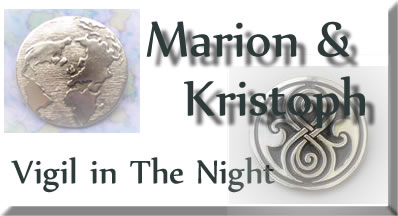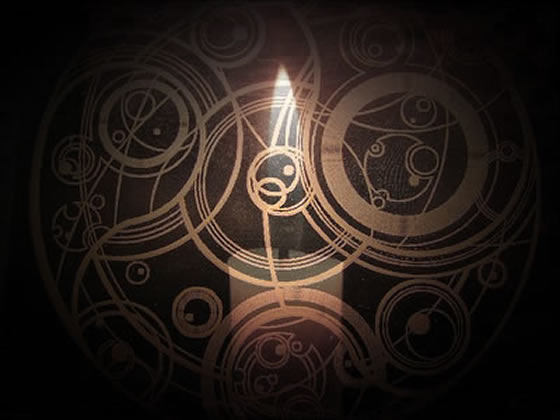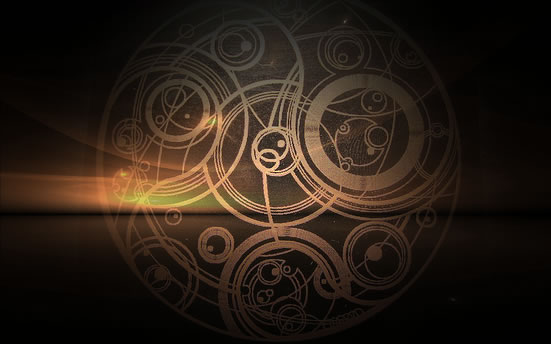

Caolin came with Aineytta to the official car on the driveway outside the house. The driver in Presidential Guard uniform was standing ten feet away looking scared. Caolin opened the passenger door and gasped in dismay when the Master of the House he served collapsed into his arms, half conscious. Aineytta looked at her son and was filled with dismay. He had a high fever and the tell-tale purple, bruise like blotches covered his face and arms.
Caolin didn’t need to be told to get him into the house, but it was difficult to do it on his own. Kristoph was dead weight, unable to stand up for himself. She turned to the driver.
“Help him,” she ordered.
“No,” he responded. “I’m not going to catch the plague. Who’ll take care of my family if I die?”
“Then get off our property and never show your face here again,” Ainetta responded with unexpected fierceness. The man fled as Gallis Limmon, Marion’s loyal chauffeur hurried to assist the butler. Aineytta followed them into the house, leaving the car on the driveway with the door still open.
The two most faithful servants of the house carried their Master upstairs and laid him on his bed. Aineytta called for a maid and sent the girl to bring medicinal herbs from her room then set about examining Kristoph. He was falling into a deep fugue now, rambling almost incoherently about work still to be done. It was a familiar pattern. Broen’s virus caused just that sort of delirium.
“He has the early symptoms,” she said. “But it is not too late. If he gets the right medicine, I may save him.” She looked at the two men who had assisted her thus far. “You know that you must remain in this wing of the house, now, and avoid contact with others. Caolin, I am sorry. Rosanda must remain with Marion. Gallis….”
“I have no loved ones within the household, madam,” he said. “My family are in the township and I know not what their fate. But I serve his Lordship and his Lady in whatever task is asked of me.”
“I have told my wife the situation,” Caolin said. “She understands. Lady Marion is distressed, but that is only to be expected.”
“I can do nothing for her, now,” Aineytta said. “I had to choose between my son and my daughter in law and grandchild. The choice is made. All I can do now is care for him as I cared for him all my life.”
Caolin and Limmon helped her to take his robes from him and wrap him in cool linen sheets. Aineytta noted that the blotching already covered his whole body, and his skin was dry and hot to the touch.
The maid knocked on the door. Aineytta told her to leave the basket of herbs outside and return to the kitchen. The less people here in this room the better. Caolin fetched the herbs for her and she began making them up in a hot water infusion. She brought the cup and gently helped her son to drink it. He was half aware of her. He tried to help himself by swallowing the bitter brew. She knew that constriction of the throat was one of the painful symptoms, but he tried.
“That’s my boy,” Aineytta whispered to him. “Take your medicine and you will get well.”
Kristoph tried to speak. Aineytta held his hand to make it easier for him to communicate telepathically. Even that was difficult for him. He was barely holding onto consciousness.
“Don’t try, my precious,” she answered him both in words and with her gentle telepathic response. “Sleep, now. Let the medicine take effect and sleep until you are well.”
She drew her hand over his forehead and eased him into a more peaceful state. She felt his mind relax a little more. His dreams were still too tortured and confused. He was worrying about everybody else and not himself.
“My good son,” she said. “He is still trying to run the High Council even in his sleep. His duty to his people is so profound, it makes me proud. But he will give himself a neural implosion if he does not calm his mind.”
She put herself into his mind and touched those fevered thoughts. She gently pushed them aside and put, instead, a quiet memory of when he was a boy and she sang him to sleep at night. In her mind she sang the simple lullaby that had been such a comfort to him then. She felt him respond. The words were mostly nonsense, made up words, but they had a soothing rhythm and it seemed to work.
When the lullaby had soothed him she put other memories in his mind, of innocent days when he was unburdened and untroubled. She remembered sunny afternoons in the warm summer that he was seven years old, when he first learnt to swim at a wide bend in the river Bærrow where the water spread into a calm, placid pool. Once he had been taught the basic strokes he swam strongly and fearlessly, excited to have learnt something that gave him the freedom and adventure his young soul craved. He had wanted to go to the swimming place every day after that. Aineytta had been pleased to indulge him. She sat on the grassy bank and watched him while he never grew tired of the novelty of the exercise. When he emerged from the water to eat the picnic that she brought, he chatted to her happily. In that summer she felt as close to him as she had when he was a helpless baby and she had tended to his needs. She cherished that memory and hoped he did, too.
The dream of his childhood, so very long ago, kept him calm and quiet for the long hours of the evening. She gave him more medicine to keep the fever from taking any further hold of him. She succeeded in that, at least, but the bruise like purple blotches increased. She prepared a lotion to cover his skin and soothe the discomfort and then wrapped him again in cool sheets. That was as much as she could do now except keep vigil by his side through the night.
“Madam,” Caolin said to her. “You must not do that. You will make yourself ill. Gallis and I will stay by his Lordship through the night. You must rest so that you can care for him in the morning.”
Gallis took her by the hand gently and made her lie on a couch where she could see at once if there was any change in Kristoph’s condition. She sighed softly and closed her eyes. Gallis Limmon made sure she was sleeping before sitting on a chair beside the bed where Lord de Lœngbærrow, his employer, his President, lay so dangerously ill. Both men prepared to keep their vigil until morning.
“Rosanda has taken Lady de Lœngbærrow to our rooms for the night,” Caolin said as midnight came and went and he felt the stillness of the house in his mind. “They will both be safe there.”
“That is good,” Gallis said. He looked at Kristoph in the light of the one lamp Caolin had left on in the room. He was quiet. Aineytta had calmed his thoughts and let him sleep peacefully. But he looked deathly ill. That was a concept Gallifreyans didn’t really have much understanding of until these past weeks. Illness was rare and death usually the result of accident or such extreme old age that it was inevitable. But Gallis recognised that his Lord was dying by inches.
“Isn’t there anything I can do about his fever?” the young chauffer asked.
“Only one thing and it would be perilous to your own life,” Caolin replied. Gallis nodded. He understood what he was being told.
“If either of us thought ourselves more important than him we wouldn’t be here. We would have fled like that cowardly driver.”
Then he pressed his hands against Kristoph’s chest and closed his eyes as he concentrated hard, drawing out the heat of his fevered body into his own. He groaned as he felt the ache in his bones and sinews that the victims of this plague suffered. But it was momentary. He wasn’t infected. He was simply taking on some of the symptoms.
“I owe him more than that,” Gallis said. “He gave me the duty of driving Lady Marion. He put her life in my hands and trusted me implicitly with that task. If I can repay that trust in this small way….”
“Yes,” Caolin answered him. He knew there were people who didn’t understand about the kind of service both of them chose. , Lady Marion herself had been one of them when she first came to live at Mount Lœng House. She took a long time to recognise that service was not the same as servility and that he and Gallis served Lord de Lœngbærrow with pride.
Lady Marion understood now. But even she would have trouble realising why the bond they had with their Lord was deeper than the salary he paid them.
It was that bond that kept the two men by his bedside through the night, taking his pain and suffering upon themselves every time the fever rose to dangerous levels.
Twice in the night Aineytta roused herself and administered more of her herbal medicine. With the help of the two faithful servants Kristoph’s inflamed body was massaged with the cooling lotion and wrapped once again in clean linen.
“We wrap the living and the dead in the same cloth,” Caolin thought once in the hour before dawn. “If he dies… our duty will be to bind his body with linen and make it ready for the funeral pyre.” He felt Gallis gently chide him for letting such a thought enter his mind.
“He has almost made it through this first night,” the chauffer said. “There is every reason to hope.”
It was nonsense, really, to think there was a difference between day and night, but they both felt that the worst would be over once the sun rose. It was a curious superstition, especially for such a pragmatic race as theirs, but it was one they both quite firmly held to. If Kristoph was alive in the morning, he would surely get well.
It seemed as if his Lordship understood the difference, too. Near dawn he stirred in his deeply induced sleep. Gallis and Caolin both listened to the words he murmured. They were not mere ramblings, they were a comment about the dawn that actually mirrored their own thoughts about that time.
“They say that people who are near death die generally at the change to dawn or at the turn of the tide….”
“It is a quote from a novel,” Aineytta said, rising from the couch and coming to her son’s side. “A Human fiction called Dracula. My son has a strange affection for the text. I found it a curiously lurid tale, but if it is proof that his brain has not been irreparably injured by this dreadful illness then I may yet come to bless its author.”
She felt his temperature and was satisfied.
“The fever is still worryingly high, but I think he is passed the worst danger.” She looked at the two faithful men. “I know what you have done for him. You have my gratitude, and that of his father when he learns of it.”
“Madam, it was not for gratitude,” Caolin said. But he didn’t have to explain further. Aineytta DID understand about service.
There was a soft knock on the door. When it was opened there was nobody there, but food had been left for the patient and for those caring for him. Aineytta took that duty upon herself, ensuring that her son’s body was nourished as well as medicated. He needed all his strength to fight the dangerous illness that still troubled him, even if the worst peril was overcome.
“You two must rest, now,” she insisted when the men had eaten. I will sit with him for the next hours.”
So it was through the long day. The vigil continued. Medicine and cooling lotion was applied regularly. The two servants took it in turns to help draw off the fever and let their master rest peacefully. Aineytta held his hand in hers and filled his sleeping mind with calm memories of untroubled times.
Another night approached and they all prepared to offer the same vigil. Aineytta stayed awake until after the thirteenth hour, but Caolin gently insisted that she sleep after that. He and Gallis again kept at their Lordship’s side through the dark hours and gave him what comfort they could offer.
Again in the dawn they heard him murmuring some words – a similar passage from the same text that had come into his mind the previous morning.
“I was not sleepy, as the long sleep yesterday had fortified me, but I could not help experiencing that chill which comes over one at the coming of the dawn, which is like, in its way, the turn of the tide.”
His voice was stronger this time. Aineytta said there was reason to hope. He was going to get well. It would take time, yet, though. Broen’s Plague was not thrown off in a few days of bedrest.
But there was hope, and Aineytta, whose two sons were both diplomats with knowledge of the universe and its diverse peoples, knew that hope was the thing that drove away despair in all but the most forlorn times.
Then Caolin gave a horrified groan. She understood why. She had felt the telepathic cry for help, too. Her hearts had quailed as she felt the anguish in that cry. She shared that anguish.
Because despite all their precautions, Rosanda had woken this morning to find that Marion was unconscious. Her temperature was high and there were distressing black and purple bruises on her skin.
Those who thought that because Gallifreyans could not cry they could not grieve would have been proved wrong when they saw the butler and the Lady clasp hands in mutual sorrow and the chauffer bow his head in untempered sorrow.

 |
 |
 |